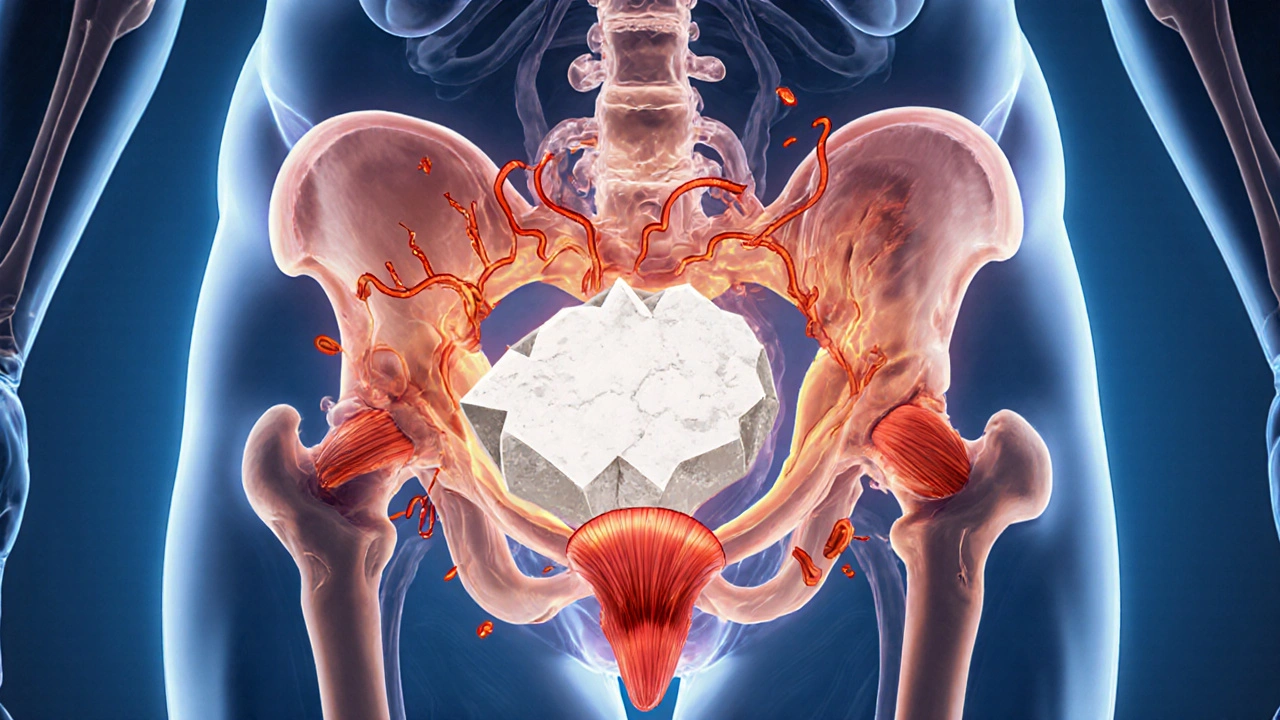Kidney Stones
When dealing with kidney stones, hard mineral deposits that form inside the kidneys and can cause sudden, sharp pain. Also known as renal calculi, they affect millions each year and often scare people because the pain feels like a gut attack. The good news is that most stones are predictable and many can be prevented or passed with simple steps. Understanding what a stone is, why it forms, and how lifestyle plays a role makes the whole process less frightening.
What You Need to Know About Kidney Stones
Kidney stones come in several flavors, each with its own chemistry. The most common type, calcium oxalate, forms when calcium binds with oxalate in urine, often because of a diet high in oxalate‑rich foods or low fluid intake. Uric acid stones appear when the body produces too much uric acid, usually linked to high‑protein diets or gout are another frequent culprit. Less common varieties include struvite stones, linked to infections, and cystine stones, tied to a rare genetic disorder. No matter the type, the core drivers are dehydration, certain dietary patterns, and metabolic imbalances. Drinking plenty of water dilutes the urine, which directly reduces the likelihood of crystal formation. A balanced diet that limits excessive sodium, animal protein, and oxalate‑heavy foods can keep calcium and uric acid levels in check. In addition, some people benefit from medications that adjust urine pH or bind minerals, showing how pharmaceutical care intertwines with everyday habits.
Managing a stone episode starts with pain control and helping the stone move. Over‑the‑counter pain relievers, like ibuprofen, are often the first line, while doctors may prescribe stronger agents such as tamsulosin, a medication that relaxes the muscles in the urinary tract to facilitate stone passage. If a stone is too large to pass on its own, shock wave lithotripsy or minimally invasive procedures become options. After the acute phase, the focus shifts to prevention: regular hydration (aim for at least 2‑3 liters a day), dietary tweaks, and, when needed, targeted drugs like allopurinol for uric acid stones or potassium citrate for calcium stones. The articles below cover a mix of related topics—from blood‑pressure medicines that affect kidney function, to dietary supplements that influence mineral balance, to practical tips for staying hydrated during busy days—so you’ll find plenty of actionable insights to keep future stones at bay.
Bladder Stones and Urinary Tract Muscle Spasms: Causes, Connection, and Relief
Explore how bladder stones trigger urinary tract muscle spasms, their shared risk factors, diagnosis, and effective treatments to prevent pain and recurrence.
Read more
